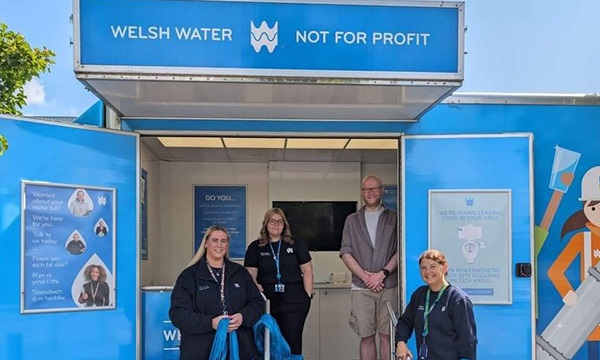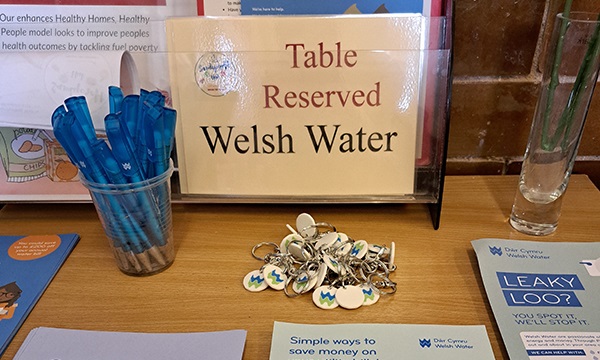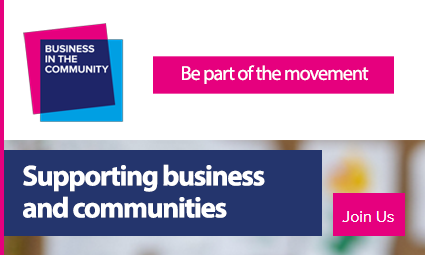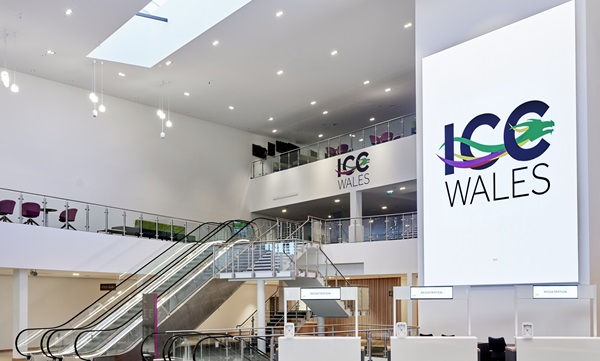
For a utilities company like Dŵr Cymru Welsh Water, providing community support can take on many forms.
Like many firms the organisation has volunteering schemes, but its community outreach also forms part of core activities across all its teams.
It has been actively involved in the Business in the Community Newport Place Programme from the scheme’s early stages around two years ago, leveraging the water company’s community based activities, such as Water Resilient Communities initiative, to contribute to the local area in a more meaningful way.
The programme aligns with the company’s broader community engagement strategy, as explained by Samantha James, Managing Director of Household Customer Services.
“We use our presence in an area, especially when we’re doing investment work, to promote the wider range of support and services we offer, from financial assistance and debt advice to careers and water efficiency,” she said.

A key part of Dŵr Cymru Welsh Water’s work with the Place Programme has been its involvement with Eden Gate, a charity supporting vulnerable people in Newport. Through this collaboration, Dŵr Cymru Welsh Water was able to use its education team – teachers seconded to the company – to run literacy sessions for Eden Gate clients.
One particularly powerful case is that of Katie, who struggled with reading for many years. With the help of these literacy sessions, followed by one-on-one support from a Dŵr Cymru Welsh Water teacher, Katie improved her reading skills and grew in confidence. This led to her passing her driving theory test, which in turn has opened up more job opportunities.
“Overcoming this obstacle has been life-changing for Katie, allowing her to look for work and become more mobile,” says Samantha.
The company has also supported the development of Eden Gate’s wellbeing garden, providing funding of up to £5,000 through its community scheme.
In addition, Dŵr Cymru Welsh Water has worked with local organisations like Pill Harriers RFC, offering advice on flood resilience and ground maintenance.
“It’s about understanding the local challenges, like drainage issues, and helping organisations like sports clubs that are often run by volunteers in their spare time,” Samantha explains.
The strength of the Newport Place Programme, according to Samantha, lies in the diversity of organisations involved. This has allowed Dŵr Cymru Welsh Water to engage with a much broader network, which has resulted in deeper community outreach.

One example of this was an event held at the Riverfront Arts Centre last October, which saw more than 37 organisations and more than 1,000 local residents came together for an informative and entertaining day. The event was timed to coincide with autumn half-term, allowing parents to explore the support on offer while their children enjoyed activities such as face painting and games.
“The focus was on creating an engaging environment, rather than badging it as a cost of living event, which can have negative connotations or attract a certain stigma,” says Samantha.
Through its involvement in the Newport Place Programme, Dŵr Cymru Welsh Water has expanded its reach into the community, using its teams from across the organisation – ranging from water efficiency to education and careers – to better understand and address local needs.
For Samantha, this pan-organisation approach is key:
“This isn’t just about volunteering. It’s part of our core activities, embedded in the work we do every day.”
Dŵr Cymru Welsh Water’s participation in the programme has also provided valuable learning experiences for its employees. By working closely with community organisations, staff have gained a better understanding of the specific challenges faced by customers in Newport. This, in turn, has improved the company’s ability to offer tailored support.

“The learning goes both ways,” Samantha notes. “We’ve gained insights from the organisations we’ve worked with, and they’ve learned more about what we can offer as a company.”
Looking ahead, Dŵr Cymru Welsh Water hopes to build on the relationships established through the Newport Place Programme. Samantha is keen to see these partnerships and networks continue to thrive long after specific projects come to an end. “One of the dangers of location-based projects like this is that the relationships can start to fizzle out once the initial work is done. It’s crucial that we sustain these connections.”






















